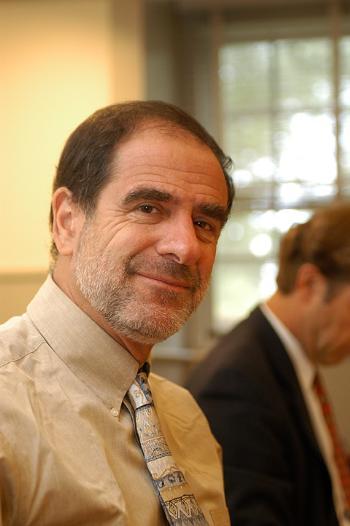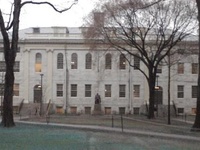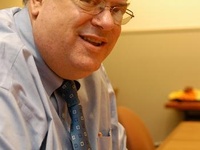Some might say the curricular review began on October 7, 2002, when Dean of the Faculty William C. Kirby declared its official launch in a contemplative, energetic letter to all members of the Faculty of Arts and Sciences (FAS).
Others might say that the review began five years earlier, when administrators began tweaking various parts of the nearly thirty-year old Core Curriculum. Still others might insist that the process did not truly begin until last May, when a steering committee and four specialized working groups were rounded up to begin brainstorming.
Despite these ambiguous beginnings, faculty and students are beginning to actively respond to nearly three years of vague discussion and quiet decision-making.
And by next September, the landscape of the curricular review may turn into a battlefield.
A report drafted by Associate Dean of the College Jeffrey Wolcowitz is scheduled to be presented to the faculty at their May 4 meeting, stimulating a year of debate before a Faculty-wide vote next spring.
By next fall, therefore, the original committees will be dissolved and issues that have remained behind closed doors will be put to public, and potentially contentious, debate.
Thus, to garner the support of the full Faculty, the review must now take a new turn. It must look outwards, reaching out to students and professors, many of whom feel as though they have been relegated to the sidelines up to this point.
BACK TO THE BEGINNING
By the time this campaign was underway, the University had already established a tradition of updating the curriculum every twenty five to fifty years.
In 1870, University President Charles W. Eliot instituted a new elective system, and President A. Lawrence Lowell started the modern incarnation of distribution requirements soon after he entered office in 1909.
By the time President Derek C. Bok and Dean of the Faculty Henry A. Rosovsky took office in 1971 and 1973 respectively, the Lowell curriculum had grown stale, and the two oversaw a review which resulted in the implementation of the Core in 1978.
From the beginning of his presidency, it has been no secret that University President Lawrence H. Summers’ has been planning major upgrades for the undergraduate program, and during his inaugural speech in October 2001, he laid out some general goals for the College which he hoped would eventually be chiseled into concrete legislation through the curricular review.
Summers said he would focus on increasing student-faculty contact, reviewing the Core curriculum, integrating curricular and extracurricular education, making concentrations more flexible and improving science education
When Dean of the Faculty Jeremy R. Knowles retired in 2002, Summers handed the reins over to Kirby, who agreed to oversee the curricular review upon his appointment.
That September, Kirby appointed Leverett Professor of Mathematics Benedict H. Gross ’71 to orchestrate the review.
Read more in News
Mahan Unveils New Harvard-Yale Game Plan
















